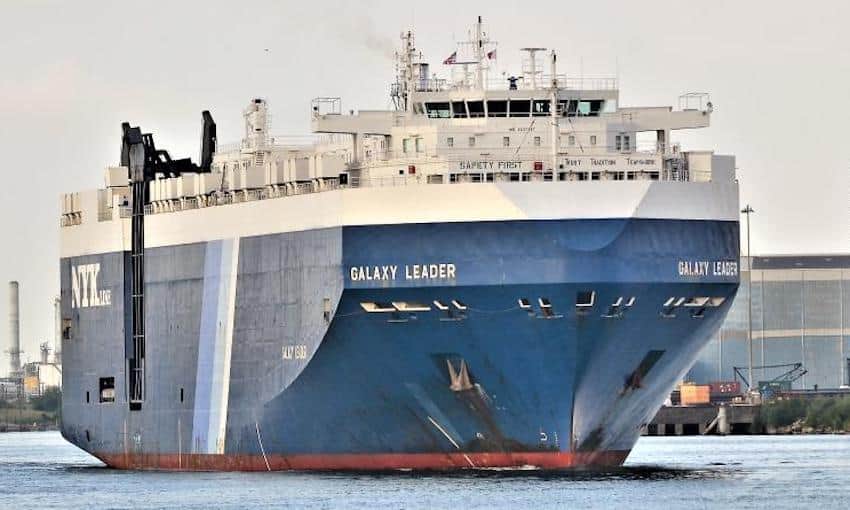A REPORT commissioned by energy exploration company Inpex suggests a shortage of seafarers is threatening Australia’s energy security, national defence and supply chain resilience.
Inpex commissioned the Maritime Workforce Position Paper with support from the Australian Resources & Energy Employer Association (AREEA), Maritime Industry Australia Limited, the Australian Institute of Marine and Power Engineers, Australian Maritime Officers Union and the Maritime Union of Australia.
The organisations are calling for “an urgent overhaul” of maritime skills and training to deal with issues such as a shortage of seafarers with the internationally-recognised qualifications needed to service strategically significant maritime assets.
The report also identified an ageing current workforce “in desperate need of regeneration” and a major funding shortfall for maritime skills training to meet the jobs gap. Poor training pathways were identified as central to the problem, as were barriers to education and skills development such as “high costs and a lack of access to berths to undertake the mandatory sea time”.
The numbers at a glance
Inpex Australia senior vice president corporate Bill Townsend said Australia’s pool of seafarers declined by 23% over the last year.
“We’re now seeing the demand for seafarers outstripping supply in circumstances approaching a flashpoint,” he said.
“This is a result of limited action in the past decade to ensure the training and crewing sustainability of the Australian shipping fleet.”
Globally, the industry is predicting a need for up to 89,510 additional officers by 2026, a challenge magnified by the pandemic, according to Inpex.
Mr Townsend said the shortfall had a direct impact on the capacity of the maritime workforce to meet the expansion and maintenance of Australia’s offshore oil and gas sector.
“And as Australia’s energy mix continues to diversify, there will be a severe shortage of maritime professionals to support offshore windfarms and to carry out important decommissioning work,” he said.
Recommended actions
The Maritime Workforce Position Paper calls for a Commonwealth funding package to address pinch-points in maritime education, training and retention and assist with “heavy costs” stifling the pipeline of ratings, engineers and officers.
It recommended four immediate actions and two actions to implement over the next three-to-five years to “ensure national resilience is not compromised”.
The immediate actions are:
- Secure funding for retention, training and education in maritime workforce roles. Reduce or subsidise RTO fees, provide workforce support program.
- Launch a targeted recruitment campaign to inspire and attract people with transferrable skills into areas of maritime workforce demand.
- Expand the talent pool by making existing STEM and technical vocation incentive programs available to people studying maritime qualifications.
- Make seagoing berths available on all vessels controlled under government and government-related contracts.
The three-to-five-year actions are:
- Standardise education, training and career pathways through establishing a national maritime training coalition with appropriate geographic distribution that facilitates effective maritime workforce development outcomes.
- Invest in technology and instructors to support optimisation of skills acquisition, development and deployment in the maritime sector.
“We’re facing an environment where the commercial maritime industry is experiencing a chronic workforce shortage, and demand for seafarers through the strategic fleet initiative, oil and gas decommissioning and the development of offshore wind projects will only increase,” AREEA deputy CEO Tara Diamond said.
She said the Australian government can and should be part of the solution.
“Without such a response, the recently announced overhaul of the navy’s surface combatant fleet, including 11 additional new multipurpose frigates, will inject further strain,” she said.
MIAL CEO Angela Gillham said seafarer training is costly and takes time, but the limited number of available vessels of sufficient size means the nation’s maritime training task falls on the shoulders of very few.
“Other maritime nations that value their sovereign maritime skills base have robust public/private maritime training and skills development support mechanisms. It is time for a wholesale re-imagining of maritime training in Australia and there is no time to waste,” she said.
AIMPE federal secretary Martin Byrne said Australia needs home-grown marine engineers to develop offshore energy sources of the future, and AMOU executive officer Jarrod Moran said investing and reinvesting in vital maritime skills now will help Australia keep its maritime independence.
And MUA national secretary Paddy Crumlin said the report highlighted areas where Australia could support initiatives and policies, from offshore decommissioning through to offshore renewable energy and the strategic fleet.
“Australia cannot risk reliance on overseas maritime skills in an increasingly polarised and unstable geopolitical environment,” Mr Crumlin said.
“We must immediately address the current and future maritime skills gap identified by industry in this report.”
The Maritime Workforce Position Paper is available here.





